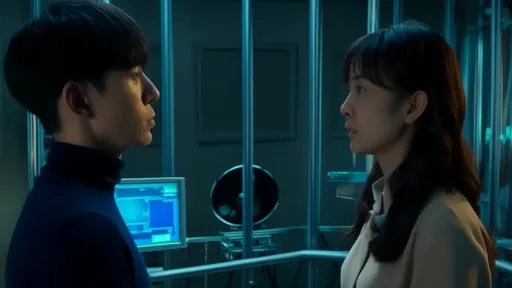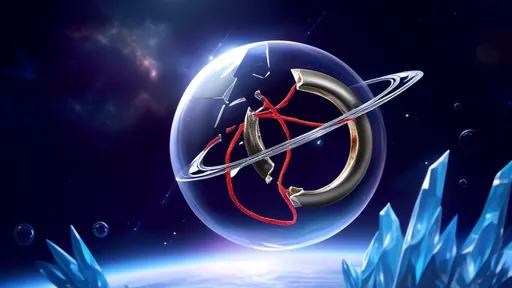The life of an astronaut has long been romanticized—heroic figures venturing into the unknown, representing humanity among the stars. Yet behind the glory and grandeur lies a less-discussed reality: the toll that space travel takes on personal relationships. Recent studies and anecdotal evidence suggest that astronauts face significantly higher divorce rates compared to the general population. The reasons are complex, rooted in prolonged isolation, psychological stress, and the unique challenges of maintaining a marriage across vast cosmic distances.
The Strain of Prolonged Separation
Space missions, particularly those to the International Space Station or future endeavors to Mars, require astronauts to spend months or even years away from Earth. This physical separation creates an emotional chasm that even the strongest relationships can struggle to bridge. Unlike military deployments or business trips, communication from space is often delayed, limited, or subject to technical difficulties. A simple conversation with a spouse becomes a logistical challenge, stripping away the spontaneity and intimacy that glue marriages together.
Astronauts also face an unusual paradox: while they are physically isolated, their lives are under constant scrutiny. Every word transmitted to mission control is recorded, and their schedules are micromanaged to the minute. This lack of privacy makes it difficult to address personal issues, leaving marital tensions to fester unresolved. The emotional suppression required to maintain professionalism in such an environment can spill over into their personal lives, creating distance even when they return home.
The Psychological Weight of the Cosmos
The psychological effects of space travel are profound. Astronauts experience a phenomenon known as the "overview effect"—a cognitive shift in awareness triggered by seeing Earth from space. While this can be awe-inspiring, it also forces a radical reassessment of one’s place in the universe. Many return with changed priorities, struggling to reintegrate into the mundane rhythms of daily life. Spouses often report that their partners come back different, as if part of them remains in orbit.
Moreover, the constant exposure to danger—whether from radiation, equipment failure, or the sheer fragility of life in space—rewires an astronaut’s perception of risk. Some become more cautious, others more reckless, but rarely do they return unchanged. These shifts can create rifts in marriages where one partner cannot fully comprehend the other’s transformation. The spouse left on Earth, managing households and children alone, may grow resentful of the astronaut’s altered worldview, feeling as though they’ve been left behind not just physically, but emotionally.
The Unseen Burden on Earthbound Spouses
While much attention is given to the astronauts, their spouses endure their own silent struggle. They become single parents overnight, responsible for maintaining the family’s stability in the face of uncertainty. The fear of a catastrophic event—always lurking in the background—adds an unspoken layer of stress. Even routine missions carry the possibility of tragedy, as evidenced by past disasters like the Columbia and Challenger explosions.
Support networks exist, but they are often insular, revolving around other astronaut families who are similarly strained. The pressure to present a perfect facade—to be the "strong spouse"—can be overwhelming. Many partners report feeling like secondary characters in their own lives, their sacrifices overshadowed by their spouse’s high-profile career. Over time, this imbalance erodes the foundation of the marriage, leaving little to return to when the mission ends.
Reintegration: A Mission More Daunting Than Space
Returning to Earth is often portrayed as a joyous homecoming, but the reality is far messier. Astronauts must readjust to gravity, to noise, to the presence of other people—and to marriages that have evolved in their absence. The spouse who stayed behind has developed independence, new routines, and sometimes new resentments. The astronaut, accustomed to the rigid structure of spaceflight, may find it difficult to relinquish control or adapt to domestic dynamics that have shifted without them.
NASA and other space agencies provide psychological support, but the focus is understandably on the astronauts’ well-being, not their marriages. Counseling is available, yet many couples avoid seeking help, fearing it could jeopardize future missions. The stigma around divorce in such a high-achieving community further discourages open discussion, leaving many to suffer in silence until the marriage collapses under the accumulated weight of unspoken grievances.
Is There a Future for Astronaut Marriages?
As humanity prepares for longer missions—to Mars and beyond—the strain on marriages will only intensify. Solutions are elusive, but some suggest rethinking the very structure of astronaut selection and support. Perhaps future spacefarers will be chosen not just for physical and technical prowess, but for emotional resilience and the strength of their relationships. Virtual reality could one day offer more immersive ways to connect across the void, but technology alone cannot mend the human heart.
For now, the stars remain a jealous mistress, demanding sacrifices that extend far beyond the individual astronaut. Until we find a way to balance the cosmic calling with the earthly need for connection, the divorce rate among those who reach for the heavens will likely continue to climb—a silent casualty of humanity’s quest to explore the final frontier.

By /Jul 3, 2025

By /Jul 3, 2025

By /Jul 3, 2025

By /Jul 3, 2025

By /Jul 3, 2025

By /Jul 3, 2025

By /Jul 3, 2025

By /Jul 3, 2025

By /Jul 3, 2025

By /Jul 3, 2025

By /Jul 3, 2025

By /Jul 3, 2025

By /Jul 3, 2025

By /Jul 3, 2025

By /Jul 3, 2025

By /Jul 3, 2025

By /Jul 3, 2025

By /Jul 3, 2025

By /Jul 3, 2025

By /Jul 3, 2025